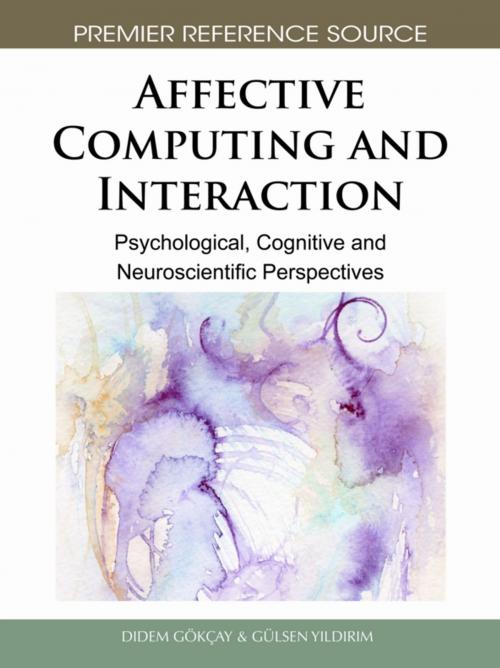Affective Computing and Interaction
Psychological, Cognitive and Neuroscientific Perspectives
Nonfiction, Computers, Advanced Computing, Artificial Intelligence, General Computing| Author: | ISBN: | 9781466607941 | |
| Publisher: | IGI Global | Publication: | October 31, 2010 |
| Imprint: | Information Science Reference | Language: | English |
| Author: | |
| ISBN: | 9781466607941 |
| Publisher: | IGI Global |
| Publication: | October 31, 2010 |
| Imprint: | Information Science Reference |
| Language: | English |
Since interactions may occur between animals, humans, or computational agents, an interdisciplinary approach which investigates foundations of affective communication in a variety of platforms is indispensable. In the field of affective computing, a collection of research, merging decades of research on emotions in psychology, cognition and neuroscience will inspire creative future research projects and contribute to the prosperity of this emerging field. Affective Computing and Interaction: Psychological, Cognitive and Neuroscientific Perspectives examines the current state and the future prospects of affect in computing within the context of interactions. Uniting several aspects of affective interactions and topics in affective computing, this reference reviews basic foundations of emotions, furthers an understanding of the contribution of affect to our lives and concludes by revealing current trends and promising technologies for reducing the emotional gap between humans and machines, all within the context of interactions.
Since interactions may occur between animals, humans, or computational agents, an interdisciplinary approach which investigates foundations of affective communication in a variety of platforms is indispensable. In the field of affective computing, a collection of research, merging decades of research on emotions in psychology, cognition and neuroscience will inspire creative future research projects and contribute to the prosperity of this emerging field. Affective Computing and Interaction: Psychological, Cognitive and Neuroscientific Perspectives examines the current state and the future prospects of affect in computing within the context of interactions. Uniting several aspects of affective interactions and topics in affective computing, this reference reviews basic foundations of emotions, furthers an understanding of the contribution of affect to our lives and concludes by revealing current trends and promising technologies for reducing the emotional gap between humans and machines, all within the context of interactions.















